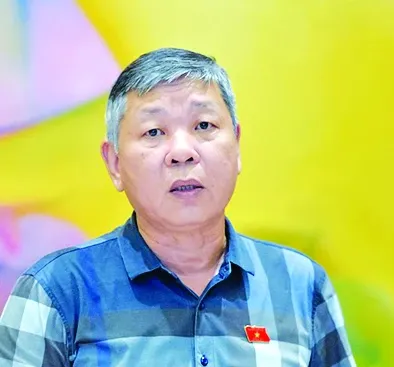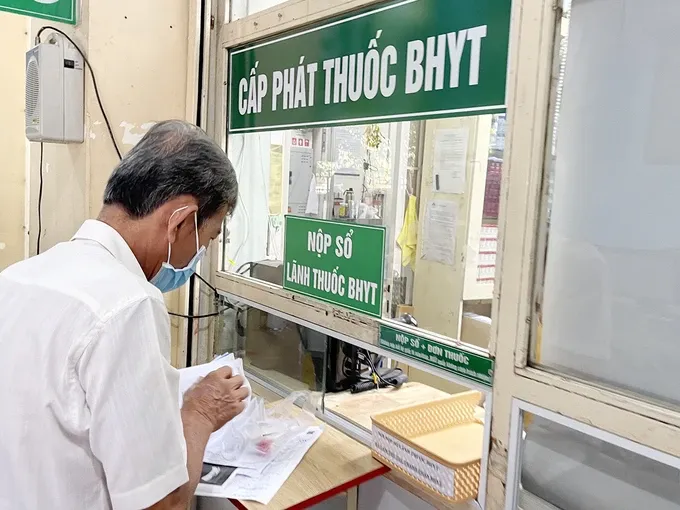
Elaborating on the notable new points in the draft Health Insurance Law that has recently been submitted to the National Assembly for consideration, Deputy Head Nguyen Hoang Mai mentioned several ideas.
Firstly, regarding the scope of beneficiaries, the draft has essentially included all subjects as stipulated in the existing law and related decrees, while also adding a new group not previously mentioned, namely village medical staff and village midwives.
Secondly, in accordance with the Law on Medical Examination and Treatment, starting from January 1, 2025, patients will be referred to other hospitals according to their technical expertise levels.
As to public confusion regarding the tiered referral system in the second point above, the Deputy Head further explained that from January 1, 2025, there will only be three levels of primary, basic, and specialized, instead of the previous four.
The specific classification of these levels is currently being finalized by relevant agencies. The possible issues arising from this new tiered referral system, related to both patient benefits and the operations of medical facilities when implementing these new regulations, will be addressed through transitional provisions.
Deputy Head Nguyen Hoang Mai then stressed certain misunderstanding about the term “administrative boundary”, the third new points in the Law. Removing “administrative boundaries” is often misunderstood to mean that patients can seek treatment anywhere and receive the same level of insurance coverage. There are still limitations based on benefit levels.
If patients independently seek treatment at a basic or primary level medical facility, they can choose a suitable facility, and the insurance will cover 100 percent of the costs, except for outpatient treatment at a basic-level hospital (currently provincial-level hospitals) which is covered at 50 percent.
However, if a patient, without meeting certain specified conditions (such as serious illnesses or emergencies), independently seeks treatment at a specialized-level hospital, they will only receive 40 percent coverage for inpatient costs.

The fourth new point, which has also generated much debate, concerns the drugs covered by health insurance. The draft Health Insurance Law has outlined several mechanisms to ensure the drug supply for medical facilities in case of shortages. Particularly, there is a mechanism for transferring drugs from one hospital to another in such cases.
Discussing a proposal about a mechanism for reimbursing patients who have to purchase drugs that are included in the list of drugs covered by health insurance from outside pharmacies, the Deputy Head stated that there are still controversies over this matter. Although the Ministry of Health has issued a circular allowing insurance agencies to make direct payments to patients, due to complex procedures and regulations, this is difficult to implement in practice.
Concerning the shortage of other medical equipment and supplies, he said that with the Health Insurance Law being effective, the Government is to apply different solutions to prevent a recurrence of such situations. Not only drugs but all medical supplies related to examination and treatment must be fully ensured, which is the direct responsibility of medical facilities to meet the operating conditions.
Answering the inquiry whether the issuance of the new Law can make medical examination and treatment via health insurance more convenient or not, the Deputy Head assured with the citing of specific provisions for cases where patients are directly referred to specialized medical facilities and can receive the same insurance benefits anywhere.
This regulation will alleviate the difficulties faced by patients who wish to be transferred to other hospitals. More importantly, the draft law grants participants the right to choose the option that is most beneficial to them.
As to the reason why students cannot choose to join the family health insurance plan, he explained that this group is partially sponsored by the state budget, and thus joining health insurance at school will increase the coverage rate for this group. To ensure fairness, the solution is for the government to consider increasing the level of financial support for them.
Finally, as to the proposal to include retired police officers in the group of beneficiaries covered by the state budget for health insurance, during the process of amending the Health Insurance Law, there has been no opportunity to assess the impact of this policy. Therefore, this issue will be considered at a more appropriate time.
























